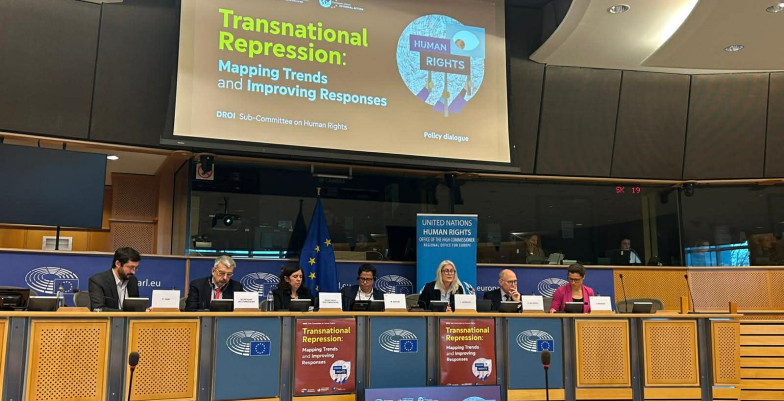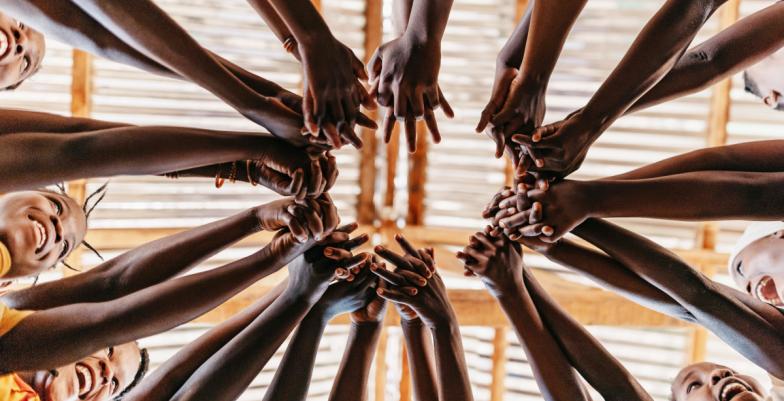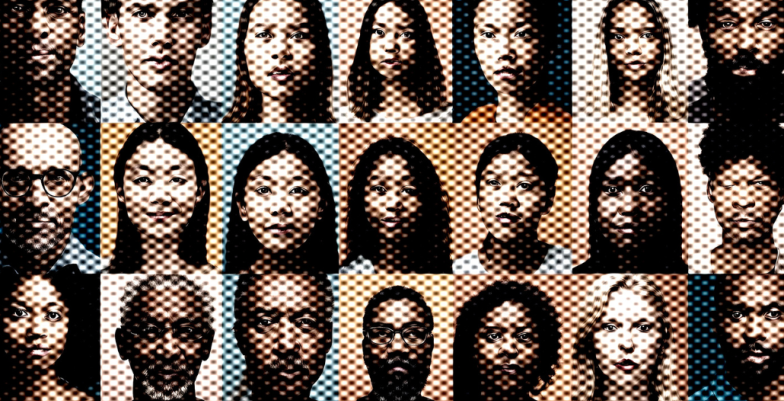LGBTIQ+
Lesbian, gay, bisexual, transgender and intersex (LGBTIQ+) persons have the same human rights as all individuals, including freedom from discrimination. Yet, in too many places, they face discrimination, exclusion, harassment, violence and persecution.
Discrimination against LGBTIQ+ persons
Discrimination against LGBTIQ+ persons is often rooted in societal norms and perceived roles that perpetuate gender inequalities. The EU is particularly concerned that in some countries, sexual relations between consenting adults of the same sex are criminalised and are liable to be punished with imprisonment or the death penalty. The criminalisation of consenting same-sex relations is contrary to international human rights law and violates the human rights of LGBTIQ+ persons.
In some countries, governments actively seek to limit the freedom of assembly, association and expression of LGBTIQ+ persons. Legislative frameworks protecting LGBTIQ+ persons from discrimination and hate crimes are absent in many countries, and discrimination on the basis of real or perceived sexual orientation or gender identity all too often occurs around the world when LGBTIQ+ persons try to access jobs, health care or education.
EU policies on LGBTIQ+
The European Union is committed to the principle of equality and non-discrimination on the grounds of sexual orientation and gender identity, and continues to actively promote and protect the full and equal enjoyment of all human rights by all LGBTIQ+ persons. The EU upholds the universality of human rights and reaffirms that cultural, traditional or religious values cannot be invoked to justify any form of discrimination, including discrimination against LGBTIQ+ persons.
The EU is gravely concerned that sexual orientation and gender identity continue to be used to justify serious human rights violations around the world.
In accordance with the EU Action Plan on human rights and democracy (2020-2027), the EU takes action to combat all forms of discrimination on any ground, with specific attention to multiple and intersecting forms of discrimination, including on the grounds of sexual orientation and gender identity.
The EU is also committed to stepping up actions to prevent, denounce and combat all forms of discrimination and harassment against LGBTIQ+ persons, including LGBTIQ+-phobic violence, hate speech and hate crimes, as well as actively condemn and combat discriminatory laws, policies and practices, including the criminalisation of consenting same-sex relations.
As outlined in the Council Conclusions on EU Priorities in UN Human Rights Fora in 2025, the EU reiterates its commitment to equality and non-discrimination, to the entitlement of all persons to enjoy the full range of human rights and fundamental freedoms, and to the protection of those who are in disadvantaged, vulnerable and marginalised situations.
The EU engages with UN mandates focusing on combating violence and all forms of discrimination and continues to give strong support to the UN work in this regard.
The EU continues to implement the EU Guidelines to Promote and Protect the Enjoyment of all Human Rights by LGBTI Persons.
The first ever European Commission Strategy on LGBTIQ Equality 2020-2025 was adopted on 12 November 2020, providing a framework to advance towards an LGBTIQ equal and inclusive EU. One of its main objectives is to enhance LGBTIQ equality mainstreaming in other policy areas.
The European Commission, as outlined in its political guidelines, will propose an updated LGBTIQ equality strategy, including a ban on so-called conversion practices and on tackling persistent hate-motivated harassment and violence, including online.
The rights of LGBTIQ+ persons and non-discrimination remain part of the EU’s public diplomacy efforts, including raising these questions during Human Rights Dialogues with third countries. The EU promotes the principles of equality and non-discrimination in the UN in line with its broader human rights commitments.
It a statement on the International Day Against Homophobia, Biphobia and Transphobia (IDAHOT), the EU affirmed its strong commitment to respect, protect and fulfil the full and equal enjoyment of all human rights by all LGBTI persons, and called on all governments to repeal discriminatory legislation, tackle hate crimes and hate speech, prevent violence and address systemic biases.
Each year for IDAHOT, many EU Delegations worldwide raise the rainbow flag, issue press releases, and participate in local pride celebrations to draw the attention of policymakers, opinion leaders, social movements, the general public and the media to the violence and discrimination experienced by LGBTIQ+ people globally.
The EU also supports civil society organisations and human rights defenders in their efforts to advance the rights of LGBTIQ+ persons. The EU is among the top donors worldwide through support to LGBTIQ+ civil society organisations. Over the last years, the EU has provided numerous grants for projects implemented inside and outside the EU. In addition, the EU provides support to Human Rights Defenders in complex and emergency situations. Since 2015, more than 9.500 LGBTIQ+ rights defenders and grassroots LGBTIQ+ rights communities received support from the EU Human Rights Defenders Mechanism.








